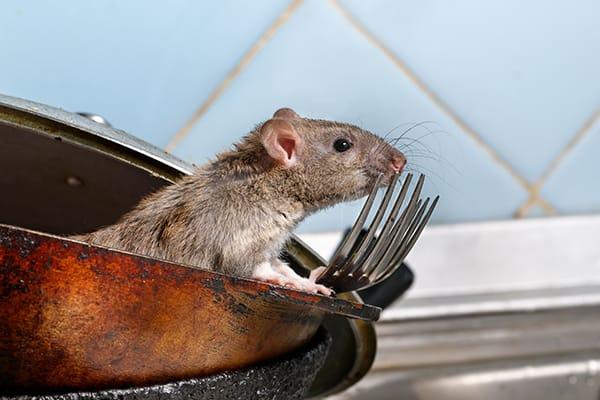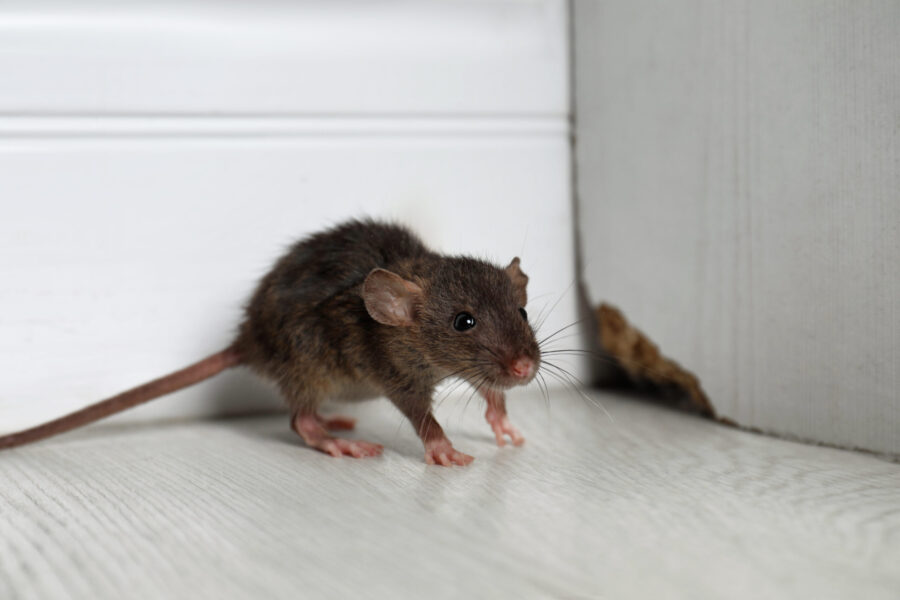
The Rising Relevance of AI in Business
In today's rapidly evolving technological landscape, businesses are constantly seeking innovative solutions to improve efficiency and minimize risk. One profound yet underappreciated advancement is the emergence of AI rodent alert systems for businesses. These systems have become increasingly crucial in maintaining health standards and ensuring seamless operations in various sectors. The role of AI rodent alert systems is to detect and manage rodent presence proactively, preventing potential damage and contamination. But how do these systems work, and why are they becoming a vital component for businesses?
Amidst the hustle of operational demands, pest management might not always be the top priority for business owners. However, recent studies have highlighted how rodents can inflict significant damage, affecting a company's profitability and reputation. Enter AI technologyan ally in the battle against these persistent pests, now smarter and more efficient than ever before.
Understanding the Technology Behind AI Rodent Alert Systems
The magic of AI rodent alert systems lies in their sophisticated use of algorithms and data analytics to predict and alert businesses of potential rodent activities. These systems utilize sensors, cameras, and even infrared technology to monitor areas continuously and detect unusual activities indicative of rodent presence. By analyzing this data, the AI can determine the likelihood of an infestation and immediately notify the relevant personnel.
Moreover, the predictive capabilities of AI systems extend beyond just detection. Advanced algorithms analyze historical data to forecast future infestations, enabling businesses to implement preventive measures proactively. This not only saves costs associated with damage repair but also preserves a company's reputation, especially in sensitive industries like food production and hospitality.
Why Businesses Should Consider AI Rodent Alert Systems
Businesses, particularly those in industries vulnerable to rodent infestations, stand to gain significantly from integrating AI technologies. Consider this: A proactive approach to pest control helps maintain compliance with health regulations, potentially avoiding fines and closure. Additionally, by preventing infestations, companies can avert product wastage and damage, thereby safeguarding their bottom line.
Industries like agriculture, hospitality, and food processing have begun to see the benefits first-hand. For instance, commercial farms can see a marked reduction in crop loss and contamination once these AI systems are in place. Similarly, supermarkets and retail spaces enjoy increased consumer trust and reduced product waste.
Real-world Applications of AI Rodent Alert Systems
One compelling real-world application is in warehouses, where rodent presence can lead to significant loss and operational disruptions. Warehouses serve as critical points in the supply chain, and any compromise here can ripple through entire business operations. With AI systems, potential threats are flagged promptly, allowing for quicker response times.
In the hospitality sector, maintaining a rodent-free environment is critical not only for health but also for maintaining reputation and customer satisfaction. AI systems implemented in breweries and hotels ensure an inconspicuous and effective pest management solution.
How AI Changes the Face of Rodent Management
The transformation brought about by AI rodent alert systems is not limited to operations alone. Companies are now able to significantly enhance their sustainability credentials, thanks to the non-toxic and environmentally friendly nature of these alert systems. Traditional pest control methods often involve harsh chemicals, which can have adverse effects on the environment. AI technology, however, focuses on prediction and prevention, employing tactics that minimize ecological impact.
For businesses looking to enhance their eco-friendly practices, AI solutions offer a dual benefitstreamlining operations while supporting environmental sustainability initiatives. It's a symbiotic relationship that leverages cutting-edge technology to solve age-old problems effectively and responsibly.
In Conclusion: The Future Awaits
As we stand on the brink of further technological integration in business, the role of AI in various operational domains is set to expand. AI rodent alert systems for businesses are a prime example of how artificial intelligence not only optimizes existing processes but also opens new avenues for innovation and sustainability. Businesses aiming to remain competitive and compliant should consider exploring these systems for their operations.
For more insights on pest management and AI technology, check out this article on rodent control in warehouse facilities and learn how businesses are adapting to new technological advancements in pest management.

FAQs
How do AI rodent alert systems detect rodents?
They use a combination of sensors, cameras, and data analytics to monitor and identify unusual activities that suggest rodent presence.
What industries benefit the most from AI rodent alert systems?
Industries such as food processing, hospitality, agriculture, and warehousing benefit significantly due to their vulnerability to rodent infestations.
Are AI rodent alert systems environmentally sustainable?
Yes, these systems focus on prevention and non-toxic methods, making them more environmentally friendly compared to traditional pest control methods.
This article contains affiliate links. We may earn a commission at no extra cost to you.
